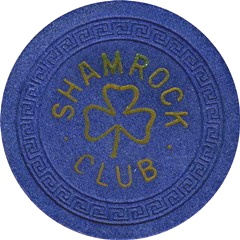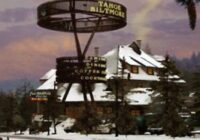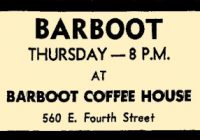|
Listen to this Gambling History blog post here
|

1955-1956
In March 1955, Nevada gaming regulators accused Caliente mayor Donald E. Rowan of cheating while dealing a 21 game — which is illegal — in the Shamrock Club. He’d operated the Clover Street gambling enterprise with his partner and father-in-law Joe Colombo for seven years. Rowan had been the elected head of this southeastern Nevada railroad community for six.
The charge jeopardized his mayorship (the election was a month away, and he was unopposed) and his entrepreneurship (he may lose his gambling license), both sources of income.
A Civil Servant
By 1955, Rowan, 46, had lived in Caliente for about 30 years. The Silver State native, born in Goldfield, had worked for the Nevada Highway Department and during World War II, served as a medic with the U.S. Navy in the South Pacific.
Along with serving as mayor, Rowan’s civic contributions included having organized the Caliente Fire Department and being its first chief. Also, he’d formed and headed three local groups: the Rotary Club, Veterans of Foreign Wars and Chamber of Commerce.
Charge of Bubble Peeking
As ordered, Rowan appeared on April 1 before the Nevada Tax Commission to state his case.
At the hearing, the commissioners alleged that one of their undercover agents and a commission investigator both witnessed Rowan and another Shamrock dealer, Bob Powell, bubble peeking. In this move, advantageous to the house, the dealer crimps the top card on the deck with their thumb, creating a bulge, or bubble, and then peeks at the card’s number.
Rowan declared innocence, saying, “I might hold my deck funny, but I wasn’t peeking.” He asked the commission to act swiftly because if they decided to revoke his gambling license, he would bow out of the run for mayor. He wanted to give Caliente residents (about 1,500 people lived there) some time to find a replacement, and the filing deadline for candidates was only eight days away.
Allowing Minors to Gamble
The tax commissioners also accused Rowan of allowing under-age youths to gamble and drink alcohol at the Shamrock, violations of Nevada law as well.
Rowan’s response was that he’d let his son, who’d just returned home from college, drink a little with his friends, but stopped it when the friends invited others to join them. The mayor added that the Shamrock Club hadn’t been in trouble with the Caliente police ever, and one member of the force was at the club often, playing in a band.
How the Votes Went
Despite Rowan claiming innocence and having a clean gaming record since entering the industry seven years earlier, the tax commissioners stripped him of his gambling license, which had covered 21, craps and slot machines. They based their decision on the alleged “unsuitable method of operation” of the Shamrock. Their unanimous vote for revocation put Rowan out of business.
On the mayoral front, though, developments were positive for Rowan. Caliente’s residents re-elected him in May 1955, and he’d go on to complete a second term.
No Reprieve in Sight
Rowan requested a reinstatement of his gambling permit, in June 1955. However, the licensing arbitrators disallowed it and told him he had to wait a year before reapplying.
When that time rolled around, Rowan tried again, to no avail. In fact, he never would be granted another gambling license.
Other men, however, would get licensed for gambling at the Shamrock Club, until 2005, at which time the proprietors stopped offering games of chance. Today, the enterprise is still in business but as the Shamrock Pub, at a different Clover Street address.
Did the tax commissioners treat Rowan fairly or not?





